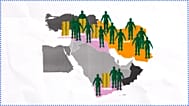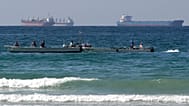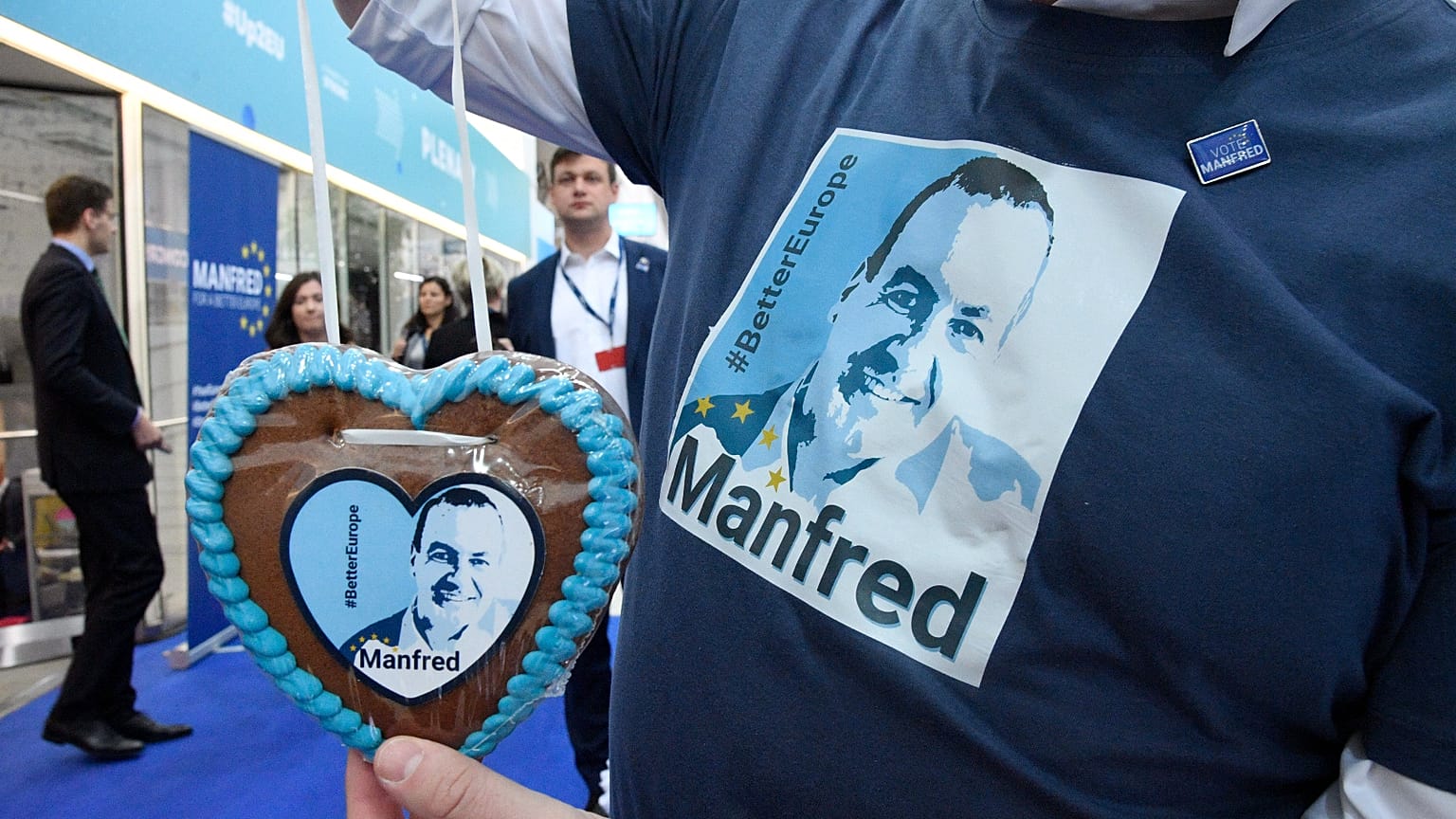European political parties will need to decide before next year's elections whether to run candidates for the EU's top executive role, even though the European Commission president was picked outside the process four years ago.
There’s been much speculation over whether the European political parties will run candidates known as spitzenkandidaten in next year's EU elections after leaders scuppered the process in 2019 by appointing one of the bloc's most powerful positions through a backroom deal.
 ADVERTISEMENT
ADVERTISEMENT
 ADVERTISEMENT
ADVERTISEMENT
The process, where parties run candidates for the role of European Commission president, was followed in the 2014 and 2019 votes. A televised debate was even organised during the last election cycle between the six candidates.
But leaders chose instead to give the job to Ursula von der Leyen, who was not a candidate at the time, over her political party's chosen contender who had spent months campaigning.
European politicians are now debating whether or not parties will be able to agree this time around to continue with the process.
The European People’s Party (EPP), the largest party in parliament, will likely have a top candidate, as it is a condition written into the party's statutes.
That candidate could even be current Commission president von der Leyen herself this year if she decides to try to stay on as president.
Will European political parties agree to run top candidates next year?
“I think the major European political parties, like EPP, Social Democrats, Liberals and probably Greens as well agree on the basics of the spitzenkandidaten process,” Spanish Socialist and Democrats MEP Domènec Ruiz Devesa told Euronews.
“What you need is to have a clear understanding of what happens after the election, which I think is what was part of the problem in 2019,” added the MEP, who was the rapporteur in the parliament on election reform.
MEPs voted in favour of reforming the EU's electoral act last year in an effort to bring together the disparate elections into a single EU-wide poll but the subject hasn’t yet been taken up by the European Council.
Part of the measures agreed by the European Parliament included adding MEPs to an EU-wide constituency and setting the elections on May 9 (Europe Day) across the union.
MEPs also wanted to have citizens vote for the European Commission president through the spitzenkandidaten process.
Ruiz Devesa said that since the lead candidate process worked in 2014, had it worked in 2019, it would have become established as a precedent.
“That was a missed opportunity. So that's why it is important that this time around we make it work,” he said.
He criticised the European Council for not taking up election measures voted in the parliament, stating that they do not need to agree on the reform prior to negotiating with parliament.
“When you negotiate, you have a negotiation with parliament and then go back to your 27 (member states),” he said, adding that he hopes the issue will be addressed during the second half of this year when Spain holds the European Council presidency.
The date of next year's elections has not yet been set and can currently vary between member states.
Fate of spitzenkandidaten process depends on political parties and parliament
Johannes Greubel, a senior policy analyst in the European politics and institution programme at the European Policy Centre, agreed that the EU political parties will likely appoint spitzenkandidaten though it could be a lead candidate or multiple candidates.
“The fate of the system or the fate of the spitzenkandidaten will depend on mainly two things: first, party considerations. So who will they choose and what chances they might have to become president or another role?”
“Then a second important consideration is the role of the parliament, which was a key difference when you look at 2014 and 2019,” he said.
While the European Parliament overwhelmingly backed Jean-Claude Juncker in 2014, Greubel pointed out that Ursula von der Leyen received just nine votes more than the absolute majority needed to get the role.
"That is a consideration that a lot will depend on: how does the parliament act and position itself directly after the election," Greubel said.
Some politicians have expressed doubts about the process, including Commission Vice President Margarethe Vestager, who according to Euractiv said she had a personal reservation because the candidates would be running for parliament just to get another job.
Some parties have not yet said whether they would support the process, including the centrist Renew Europe group.
In order for the system to work this time around, experts say, all parties would need to name a candidate and take the process seriously so it gives more democratic legitimacy to the EU.
Ruiz Devesa says that even without the election reform agreement, European political parties could agree before the elections to respect the _spitzenkandidaten_process or to use the logo and name of the European parties on the national ballots.
“There are a number of things that we can do, and I think the right tool is agreements among European political parties,” he said.
“That's certainly much less difficult than the process of reforming the European law because it's a political agreement,” he added.














